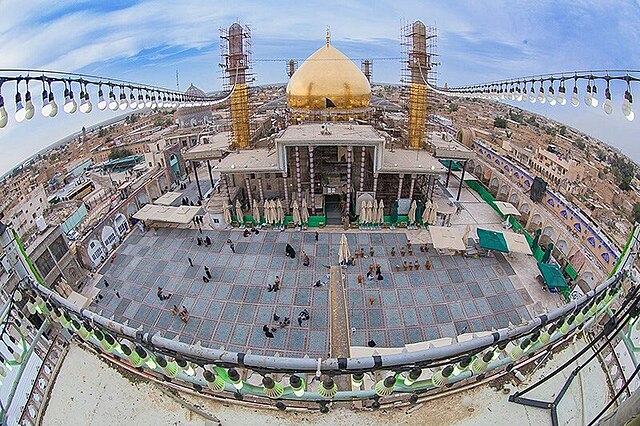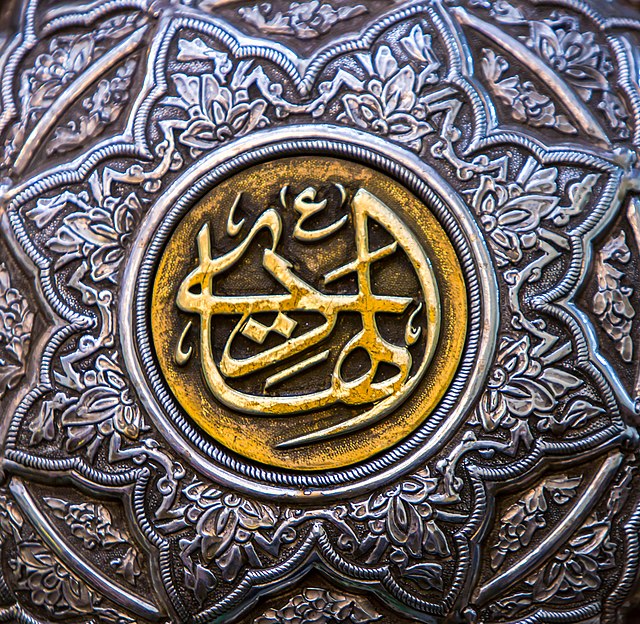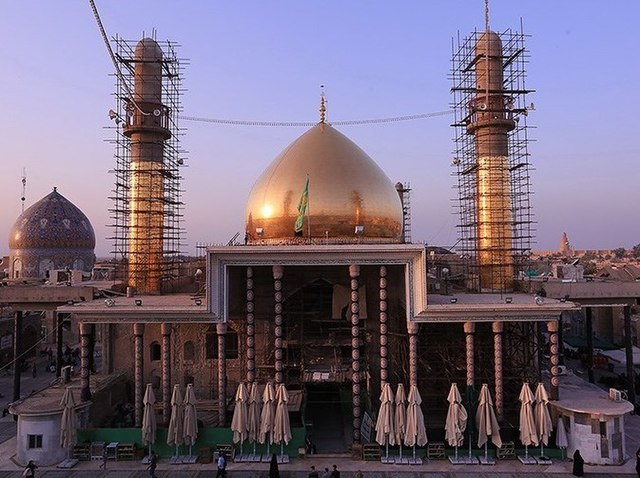Hasan ibn Ali ibn Muhammad, better known as Hasan al-Askari, was a descendant of the Islamic prophet Muhammad. He is regarded as the eleventh of the Twelve Imams, succeeding his father, Ali al-Hadi. Hasan Al-Askari was born in Medina in 844 and brought with his father to the garrison town of Samarra in 848, where the Abbasid caliphs held them under close surveillance until their deaths, even though neither were politically active. After the death of al-Hadi in 868, the majority of his following acknowledged his son, al-Askari, as their next Imam. Al-Askari's contact with the Shia population was restricted by the caliphs and instead he communicated with his followers through a network of representatives. He died in Samarra in 873–874 at the age of about twenty-eight and was buried in the family home next to his father, which later developed into al-Askari shrine, a major center for Shia pilgrimage. Shia sources commonly hold the Abbasids responsible for the death of al-Askari and his father. A well-known early Shia commentary of the Quran is attributed to al-Askari.

Al-Askari shrine in Samarra, Iraq, before the 2006 bombing
ʿAlī ibn Muḥammad al-Hādī was a descendant of the Islamic prophet Muhammad and the tenth Imam in Twelver Shia, succeeding his father, Muhammad al-Jawad. Born in Medina in 828, Ali is known with the titles al-Hādī and al-Naqī. After the death of his father in 835, most followers of al-Jawad readily accepted the imamate of Ali, who was still a child at the time. Drawing parallels with the story of young Jesus in the Quran, Twelver sources attribute an exceptional innate knowledge to Ali which qualified him for the imamate despite his young age.
Calligraphic inscription of al-Hadi's name on the zarih of Husayn ibn Ali, located in Karbala
Al-Askari shrine in Samarra, located in modern-day Iraq, before the 2006 bombing
The shrine was damaged by bombings twice in 2006 and 2007
Al-Askari shrine in 2017, partially rebuilt after the bombings





